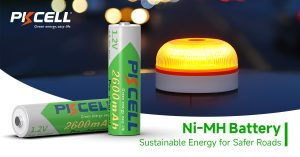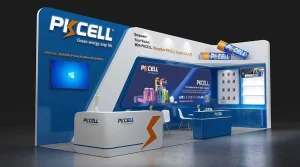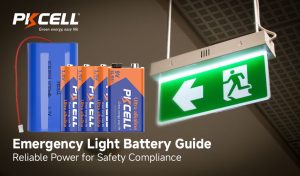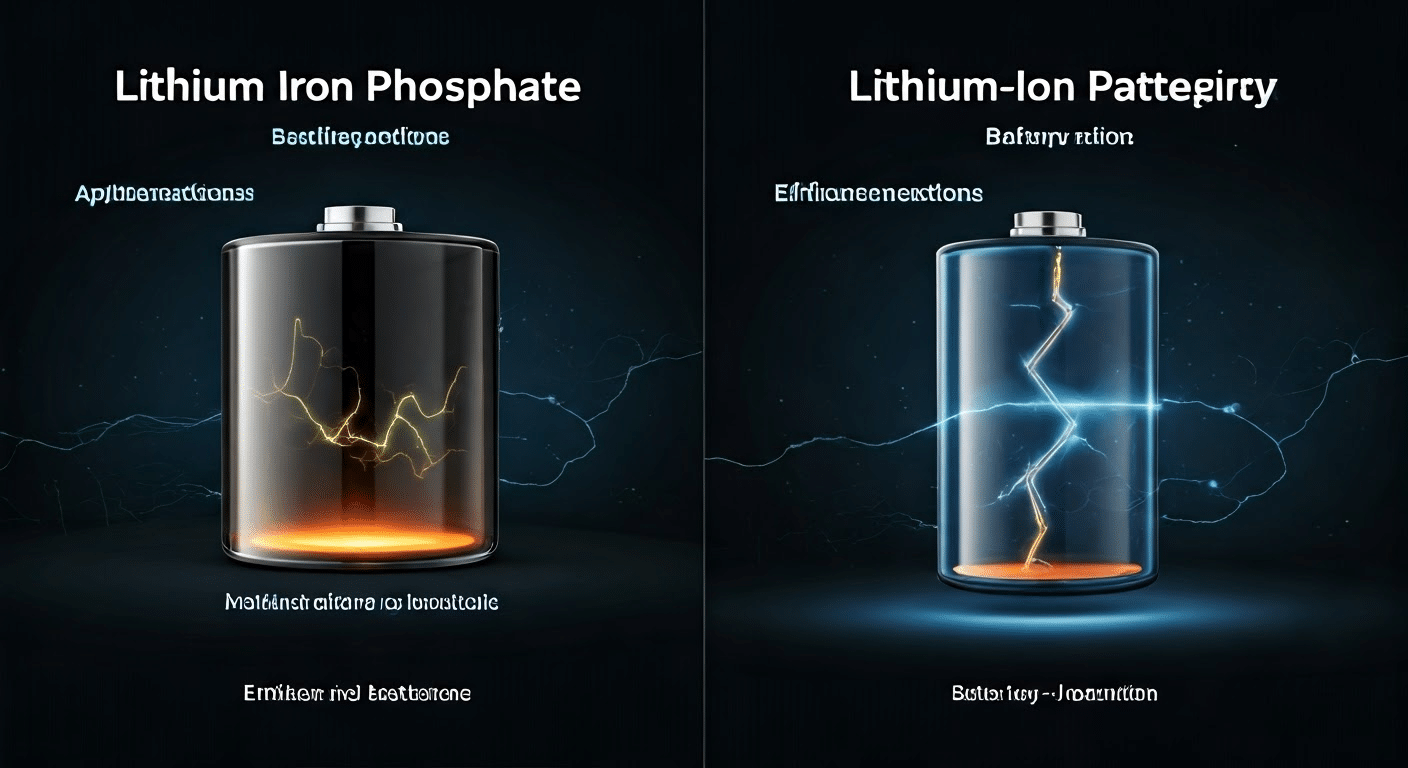
Key Highlights
- Lithium iron phosphate (LiFePo4) and lithium-ion are two common types of rechargeable batteries.
- LiFePo4 batteries are safe, last a long time, and have a high discharge rate, which makes them great for energy storage.
- Lithium-ion batteries have a higher energy density, making them perfect for portable electronics.
- When selecting a battery, think about safety, lifespan, cost, and your energy needs.
- Knowing the advantages and disadvantages of each battery can help you make better choices for your devices.
Introduction
Rechargeable batteries are very important today. They help us use portable energy and new technology more easily. Two common types are lithium-iron phosphate batteries and lithium-ion batteries. These batteries can store a lot of energy for different uses. They are in electric vehicles, portable electronics, and energy storage systems. Knowing the advantages and disadvantages of each type can help you choose the right battery for your energy needs.
Understanding LiFePo4 and Lithium-Ion Batteries
Both LiFePo4 and lithium-ion batteries can be charged again. They use lithium ions to save and release energy. The big difference is in their chemical structure, which affects their performance.
LiFePo4 batteries use lithium iron phosphate as their main material. On the other hand, lithium-ion batteries use different materials, such as lithium cobalt or manganese oxide. These different materials affect their energy density, lifespan, safety, and how well they work for particular purposes.
The Basics of LiFePo4 Batteries
Lithium-iron phosphate batteries are getting more popular due to their great features. They have strong chemistry that gives them a long lifespan, usually longer than standard lithium-ion batteries. This means you need to change batteries less often. Fewer changes help cut down on electronic waste and are good for the environment.
A main benefit of LiFePo4 batteries is their safety. Other lithium-ion batteries can experience thermal runaway, which is a risky situation that can cause overheating and fires. However, LiFePo4 batteries have a stable chemical makeup, which makes them very strong against these dangers.
LiFePo4 batteries are great because they can handle high discharge rates, delivering plenty of power when needed. They also have a long lifespan and strong performance, making them perfect for energy storage and electric vehicles.
The Fundamentals of Lithium-Ion Batteries
Lithium-ion batteries have long been used in portable electronic devices, and there is a good reason for it. They have high energy density, which means they store a lot of energy in a small space. This is very important for devices like smartphones, laptops, cameras, and even portable power stations. It helps make them easy to carry around.
Lithium-ion batteries have a high energy density mainly because of cobalt oxide in their cathodes. Cobalt oxide allows these batteries to hold more energy in a smaller space or weight than other types, like LiFePo4 batteries.
Lithium-ion batteries are the top choice in the consumer electronics market. They have a very high energy-to-weight ratio. This allows companies to create smaller and lighter devices without sacrificing battery life.
Pros and Cons of LiFePo4 Batteries
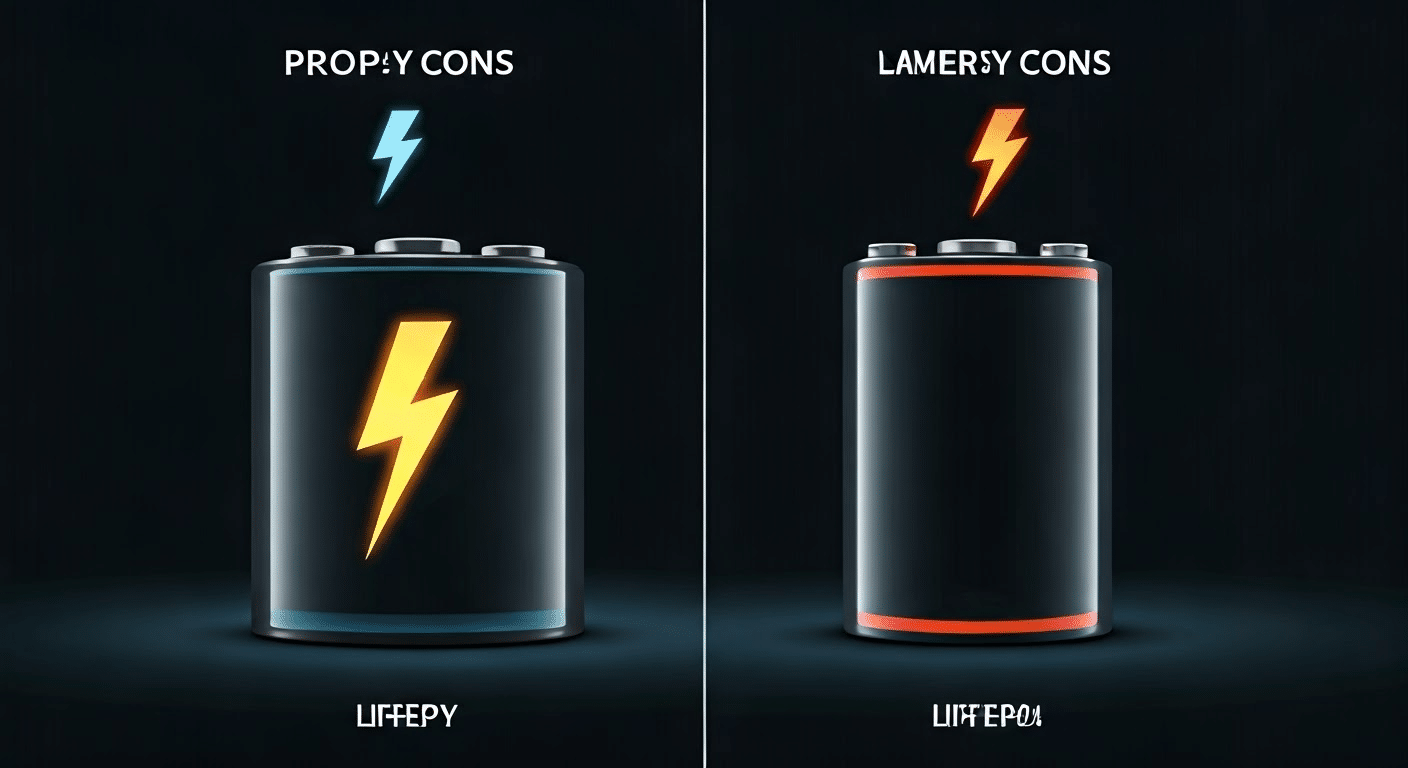
LiFePO4 batteries are special for many reasons. They are safe and last a long time. They can also give out power quickly. These batteries are good for the environment because they last longer and use fewer harmful materials.
But, they have a lower energy density than lithium-ion batteries. This means they might not be good when size is important. Their higher upfront cost could also make some people think twice about buying them.
Pros and Cons of Lithium-Ion Batteries
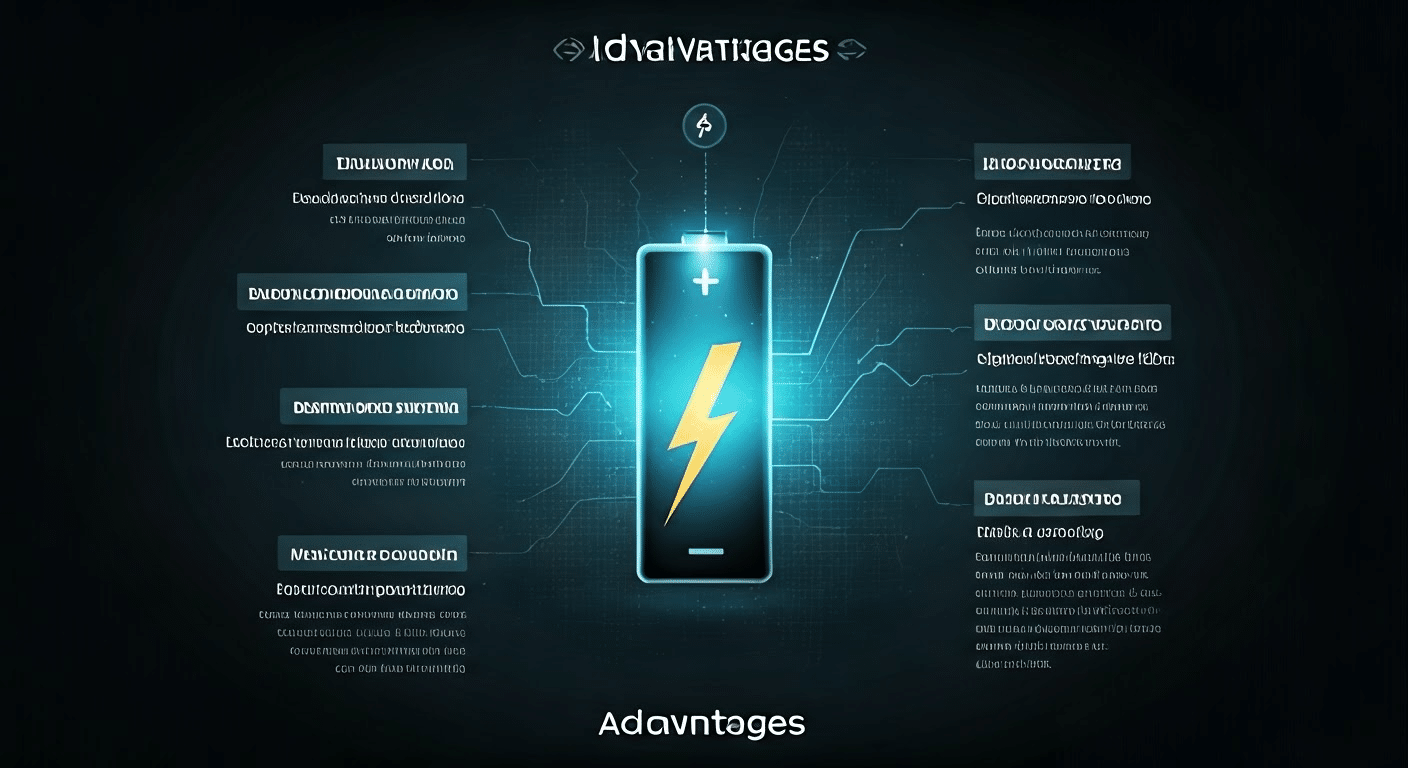
Lithium-ion batteries pack a lot of energy for their size. They are light and cheaper than LiFePo4 batteries. Because of these advantages, many people pick them for various uses.
It is important to consider the bad points as well. These are a shorter lifespan, safety risks from overheating, and a harder way to dispose of them in a way that is good for the environment.
Application Scenarios
Choosing the right battery type, like LiFePo4 or Lithium-ion, depends on how you want to use it. Each one works well for different tasks. For instance, Lithium-ion batteries are common in smartphones and laptops. They are popular because they have high energy density and are light. This means they can be a good choice for saving money in the long run.
LiFePo4 batteries have great safety features and last longer. People trust them in solar energy systems, electric vehicles, and medical devices. Being safe and reliable matters a lot in these fields.
Best Uses for LiFePo4 Batteries
LiFePo4 batteries are strong and safe. They are excellent for jobs that require reliable, long-lasting power.
Here’s where LiFePo4 batteries shine:
- Solar power systems can effectively manage deep discharges. They are excellent for storing solar energy and providing steady backup power.
- Electric vehicles use LiFePo4 batteries because they are safe and durable. These batteries offer a stable power source.
- Backup power: These batteries can keep homes or essential devices running during power outages. They ensure a steady and continuous power supply.
Ideal Applications for Lithium-Ion Batteries
LiFePo4 batteries work well for tough jobs. However, lithium-ion batteries are better for portable electronics. They are light and pack a lot of energy into a small size, making them perfect for devices that need powerful batteries but have limited space.
- Smartphones
- Laptops
- Electric vehicles
- Power tools
- Medically-assistive devices
- Renewable energy storage systems
- Portable Electronics: Devices such as smartphones, laptops, tablets, and cameras use lithium-ion batteries.
- Electric Vehicles: Some electric vehicles still rely on lithium-ion batteries. They are great because of their high energy density, which helps them drive longer distances, even though LiFePo4 is getting popular too.
- Power Tools: Cordless power tools use lithium-ion batteries. Their small size and light weight give the tools the power they need without being too heavy.
Ongoing updates in lithium-ion technology aim to make it safer and last longer. This helps keep it strong in these areas.
Comparing LiFePo4 and Lithium-Ion Batteries
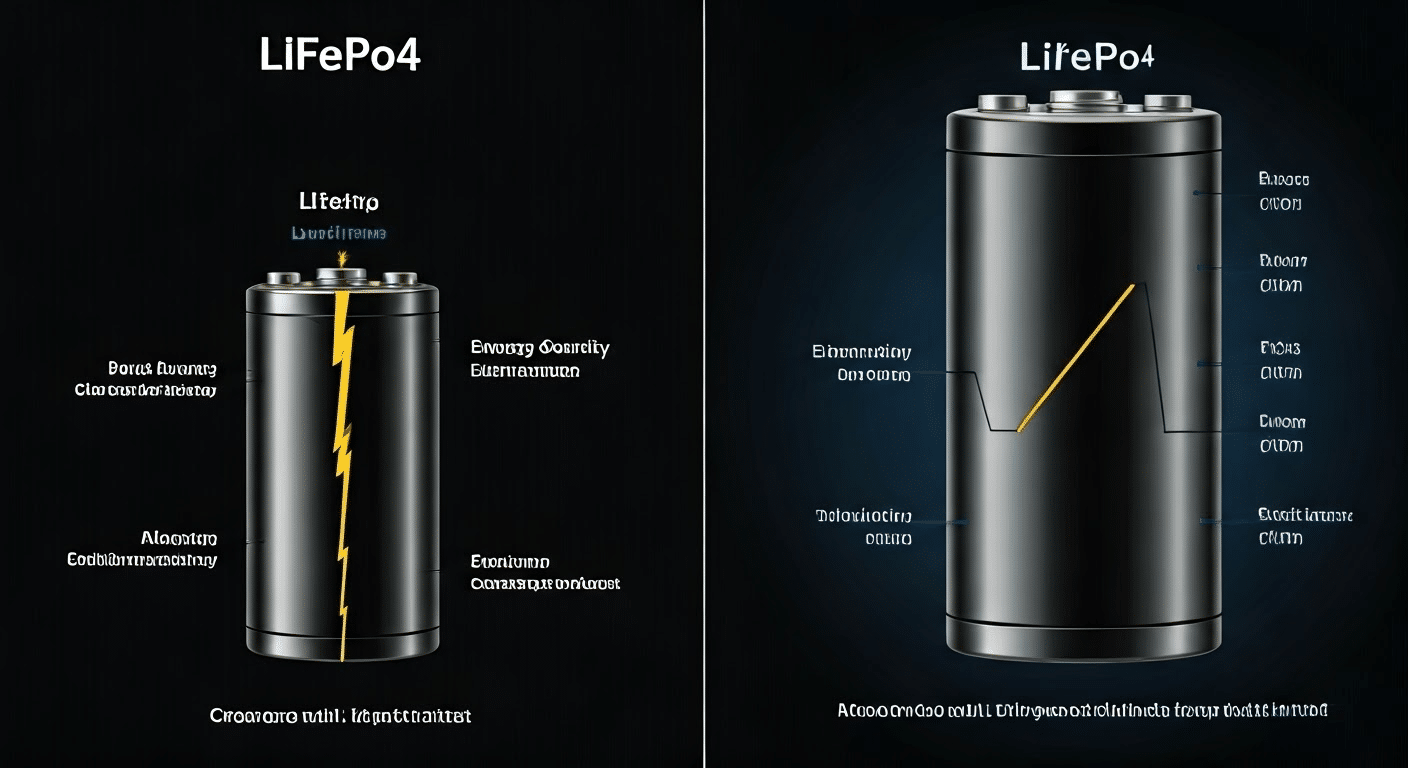
Comparing LiFePo4 and Lithium-Ion Batteries
When you look at LiFePo4 and Lithium-ion batteries, it’s not only about deciding which is better. You need to know their strengths and weaknesses. This helps to find the right one for your specific energy needs.
LiFePo4 batteries are safe, durable, and long-lasting. They work well for tough tasks. In contrast, Lithium-ion batteries have a high energy density and are lightweight. This design makes them ideal for portable electronics and devices like them.
Energy Density and Efficiency
A key point when comparing these batteries is their energy density in a specific volume. Lithium-ion batteries have a high energy density. This means they can hold more energy in a smaller size or weight than LiFePo4 batteries. A high energy density is very important for portable electronics that need to be light and small.
LiFePo4 batteries might have lower energy density. However, they are good at distributing energy. They can quickly provide a lot of energy. This makes them suitable for things that need high power output, like electric vehicles and power tools.
Ultimately, your choice will depend on how you plan to use it. If you want something light and easy to carry, choose lithium-ion for high energy density. But if you need a battery that has a high discharge rate and lasts a long time, then LiFePo4 could be the better option.
Safety Features and Risks
Safety is very important when using batteries. Both LiFePo4 and lithium-ion batteries have safety features and risks. LiFePo4 batteries are safer because they have stable chemistry. They are less likely to experience thermal runaway. This means they are less prone to overheating and catching fire.
Lithium-ion batteries need a battery management system (BMS) to monitor their performance. This system helps prevent overcharging and deep discharging. While the BMS makes things safer, there is still a small risk of thermal runaway. This risk is higher if the battery is physically damaged or not handled correctly.
Here’s a simple comparison table:
|
Feature |
LiFePo4 |
Lithium-ion |
|
Thermal Runaway |
Less prone |
More prone |
|
Safety Features |
Inherent stability |
Requires BMS |
|
Overall Safety |
Higher |
Moderate |
|
Cost |
Higher |
Lower |
|
Energy Density |
Lower |
Higher |
|
Applications |
EV,Energy Storage |
Portable Electronics |
Safety Considerations for Both Battery Types
LiFePo4 batteries are safer than other types. However, it’s still important to follow safety rules for all batteries. Always use chargers designed for your specific battery model. Keep these batteries cool and out of direct sunlight. Too much heat or sunlight can harm their safety features.
It’s important to dispose of LiFePo4 and lithium-ion batteries properly. Don’t place them in regular trash. Instead, take them to your local recycling center or an electronics store for safe disposal. By using, handling, and disposing of these batteries correctly, we can lower risks and enjoy their benefits safely.
Choosing Between LiFePo4 and Lithium-Ion
The choice between a LiFePo4 battery and a lithium-ion battery depends on your needs. Do you want a long lifespan, good safety, and steady power? Or do you prefer high energy density and a lighter design?
Looking at what you need for your use, budget, and how well you want it to work can help you choose smartly. This will make sure it fits your goals.
Factors to Consider
When you decide between a LiFePo4 battery and a lithium-ion battery, consider these points:
- Cycle Life: LiFePo4 batteries can last over 2,000 cycles, while lithium-ion batteries usually last around 500 to 1,000 cycles. If you want a battery that performs well with regular charging and discharging, LiFePo4 might be the better option.
- Safety and Battery Management System: LiFePo4 batteries are safer due to their stable chemistry. This reduces the chance of thermal runaway. Lithium-ion batteries require a strong battery management system (BMS) to stay safe, prevent overcharging, and avoid overheating.
- Operating Temperature Range: LiFePo4 batteries work efficiently in both hot and cold environments. In contrast, lithium-ion batteries can struggle in extreme temperatures.
Carefully consider these factors. They will help you choose the best battery type for your needs.
Cost-Benefit Analysis
Cost is an important factor to think about. LiFePo4 batteries often cost more at first than lithium-ion batteries. But they last longer and require less care, so they can save you money in the long run.
Lithium-ion batteries cost less at first. However, they do not last as long as other types. You might need to replace them frequently. This can erase any savings you thought you had.
You need to consider your budget and the future costs of each battery type. If you want a battery that lasts longer and costs less to replace, spending more on a LiFePo4 battery might be a smart option.
Conclusion
In conclusion, it’s important to know the differences between Lithium Iron Phosphate (LiFePo4) and Lithium-Ion batteries when you think about energy storage options. LiFePo4 batteries are very safe and last a long time. However, Lithium-Ion batteries have a higher energy density. Choosing one depends on what you need, costs, and their environmental impact. You should look closely to find which battery type works best for you. If you need help picking the right battery for your energy storage, ask professionals for quotes.
Frequently Asked Questions
Which battery type offers the best value for home energy storage?
LiFePo4 batteries are a great choice for energy storage at home. They last a long time and are safe to use, making them a top choice for your needs.
Which type of battery is more environmentally friendly: lithium iron phosphate or lithium-ion?
Lithium-iron phosphate batteries are considered better for the environment. They contain fewer harmful materials and last a long time, so they do not wear out quickly and do not need to be replaced as often.
Which is better, a lithium-ion or a lithium-phosphate battery?
There is no single best battery type. Lithium iron phosphate (LiFePo4) lasts a long time and is safer. However, lithium-ion batteries have better energy density. The best choice will depend on your needs and what matters most.

 USB Rechargeable Lithium Battery
USB Rechargeable Lithium Battery
